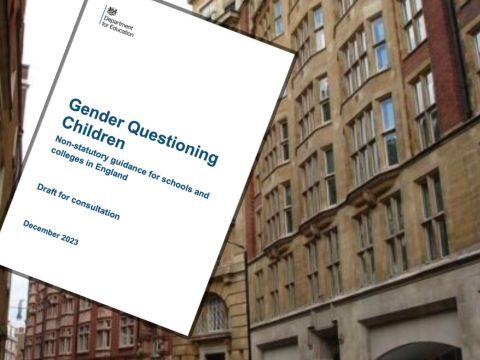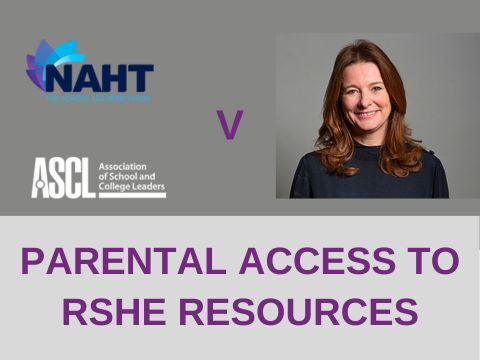

During a speech at the Conservative Party Conference, on 2 October, Education Secretary, Gillian Keegan, confirmed plans for banning mobile phones in schools, saying the Government believe mobile phones to be a distraction in class and one of the ‘biggest issues’ facing teachers. The Independent states that the UN published a major report in July this year recommending banning mobile phones to prevent classroom disruptions and cyberbullying. The Independent article also notes how a survey in 2021 by the Uswitch website found that half of those parents who took the survey backed the ban, and bans have already been implemented in Finland, France and China.
As a parent of teenagers, who have almost completed secondary school, I fully support the ban of mobile phones in schools, because I have experienced first-hand the problems they cause. I had hoped, when my children were younger, that such a ban would be in place before they started secondary school, but, unfortunately, they have had to go right through their education impacted by the mobile phone culture. In many respects, their school life was still as chaotic and threatening as the one I experienced at school in the late 90s, where every day felt like a game of survival, for similar reasons — teenagers can be brutal! What is making the lives of the current generation of school children even harder is the interconnectedness between their online and offline life. Rather than coming home after school and enjoying much-needed time out from nasty remarks and harassing behaviour from their peers, as I could have done, my kids were, instead, bringing home with them all the chaos and immature conversations from the day, which only got continued via social media and online gaming.


She was also made fun of by her peers for not having a phone, and every day she came home deeply upset. Although she couldn’t think of one reason why she actually needed a phone, she couldn’t stand the fact that she was not “keeping up” with everyone else. She was persistent that she had to “fit in” — even after she had heard the warnings from others about the troubles they’d endured, as a consequence of mobile phones at school.
I first bought her a cheap basic phone from Tesco, that she could make calls and texts on, without the worry of it being lost or broken – but that was soon hidden away as being too much of an embarrassment. So, before her second year began, I finally got her a smart phone — but the teasing didn’t subside. Even though I bought her the same phone that I had – one of the latest from Huawei — because all of her friends had iPhones, she was given a hard time for not being fashionable. I remember saying to her, “What’s the point of schools making us pay a fortune for uniform, so you all look the same and so kids won’t be bullied for having less than others, when you’re all having to keep up with probably the most expensive fashion accessory of all – the iPhone!” Then, another year later, we were able to get her the latest iPhone, and still, to this day, she has a more expensive phone than I have! I did make sure — via an app called Qustodio — that parental restrictions were on her phone, so she couldn’t access age-inappropriate material. I had already learned, though, that if she wanted to see anything which she couldn’t access on her phone, all she had to do was to ask a friend to look it up for her.
I also warned my daughter to be careful what she shared with friends via her phone; I said, “You’re accountable for the messages you send. When I was at school, if a friend had fallen out with me and decided to reveal all my secrets, I could at least deny it, because nothing we said to friends was ever written down”. She did not heed my warning, instead she came into my room at 2 am one night, crying, because fellow students had said some upsetting things about her in a group chat. I then restricted her phone times so she couldn’t use it after 10 pm, and next morning had to speak with the school about her fear of attending that day, following the nasty messages sent to her. The school investigated what had been said in these group chats and found that all the students involved in it, including my daughter, had being saying horrible things to each other. They also said that they spend too much of their time dealing with bullying taking place outside of school, via social media, and the best thing to do was to keep children off it!
Things got worse, however, when my son also started secondary school. On the positive side, having witnessed his sister’s troubles, he was better at resisting peer pressure to own a mobile himself, and able to laugh off teasing from fellow students. However, he was, unfortunately, conforming to the worst of mobile phone culture in another way. One day, while cleaning his room, I found one of my old mobiles, that I had thought safely stored away. Unfortunately, not! – I was shocked, looking at the browser history, to discover endless visits to the most appalling websites, carrying extreme pornography, including sadomasochism. I asked him how he’d found out about such websites, and he said his friends had shown him videos from them at school and had encouraged him to watch them after school. I had to have a long conversation with my son about how addictive and damaging such material is, including how it can feature and exploit genuine abuse, and does not represent the natural sexual practices of normal healthy people in proper romantic relationships and marriage.
Later that year, my son got into a physical altercation with another student while coming out of school. He was attacked physically, while others crowded round to watch and encourage the fight. A few days later, one of the girls who had been there, showed my son a recording of the fight and said she’d posted it online. I spoke with the school, who said they had checked the student’s phone and had not found the footage, but had asked her to delete the post from the site where she’d posted it. I am still not confident, however, that the footage has been removed from the internet. My son also came home, after other students in class had recorded him on their phones, voicing what they clearly thought were controversial opinions. He was worried that these videos were being shared with other students or were online somewhere.
Overall, our family had a very negative experience with mobile phones at school, and I know, from many conversations with other parents and their children, that such experiences are extremely common and part of the new normal. The Daily Mail Online, however, recently reported that many parents are concerned by the proposed ban, worrying their children will not have access to apps for timetables, homework, or payment for bus tickets. The ban, however, will not prevent children accessing such information before or after school hours. Parents also worry about not having emergency contact with their children, although this can still to be done via the school office. One parent also claimed that permitting mobile phones in schools allows children to “learn how to use them responsibly”. My response to this would be – are WE being responsible by putting into the hands of teenagers unmonitored access to potentially harmful and damaging material, or unmonitored access to the devices of other students? Why would we then expect teenagers to be responsible in the face of such temptation? For many parents, including myself, such a ban cannot come soon enough.
Opinion piece






